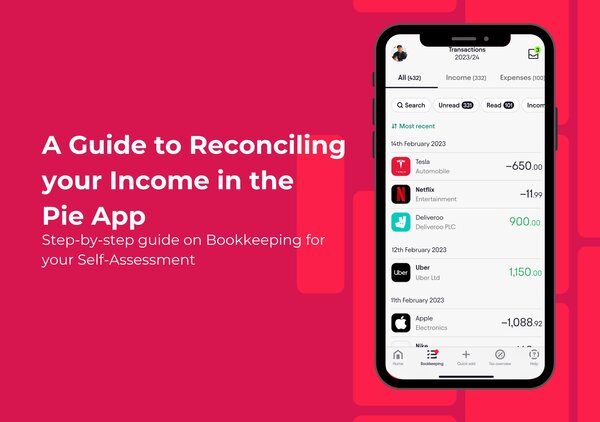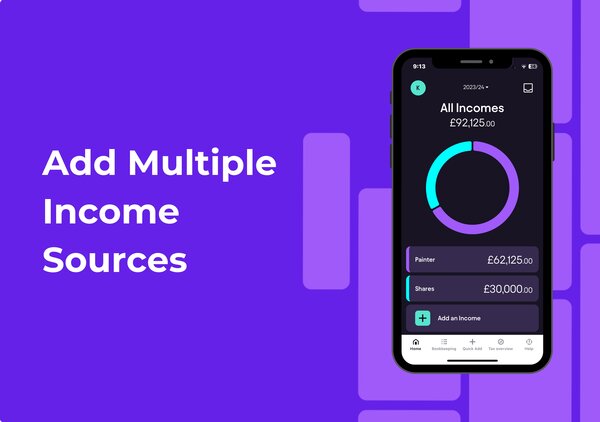Let’s Get Started
Tracking your tax deductions doesn’t have to be confusing or overwhelming. With a simple system in place, you can save money, stay organised, and avoid the last-minute stress that so many people face at tax time. Whether you’re self-employed or just looking to make the most of your allowable expenses, learning how to track deductions properly can make a big difference to your finances.
What's the big deal about tracking tax deductions?
Keeping tabs on your tax deductions could save you hundreds or even thousands of pounds each year. Yet so many of us let this money slip away because tracking tax stuff feels like a chore.
Those small deductions really add up over time, and missing them is essentially throwing money away. It’s not just self-employed folks who benefit either, anyone can claim certain tax reliefs if they know what to look for. Many people overlook their personal allowance, which can provide significant tax relief if claimed correctly.
What does tracking tax deductions actually mean?
Tracking tax deductions means keeping records of any expense that could reduce your tax bill. For UK taxpayers, this includes things like work expenses, pension contributions, charitable donations, and business costs if you’re self-employed.
Good tracking means you can easily find receipts and supporting documents such as invoices and other documents when HMRC asks, eliminating those panic searches. It also means knowing which expenses qualify in the first place, as not everything you spend money on will count. Tracking every transaction and regularly reviewing your transactions helps maintain accurate records.
The goal is to have a simple system where you capture expenses as they happen. You need to maintain accurate records and keep accurate records for all tax purposes, including all transactions and invoices.

Which tracking method is right for you?
The best tracking method is the one you’ll actually use consistently. For some, that’s a shoebox of receipts; for others, it’s a sophisticated app. There are many apps available that help you organise receipts and keep track of your expenses automatically. Digital options make things easier for most people, with your phone’s camera quickly snapping receipts before they fade or get lost.
Some people prefer spreadsheets where they can log expenses weekly, while paper lovers might use a dedicated notebook or folder system with monthly dividers. Just be consistent with whatever approach you choose.
What digital tools make tax tracking painless?
Your smartphone is probably the most powerful tax tracking tool you already own. Use it to take photos of receipts immediately and store them in cloud services like Google Drive or Dropbox, which can function as your digital filing cabinet.
Accounting software can automate expense tracking, allow you to upload receipts and store digital receipts, and extract data such as payment method from each transaction. These tools help you maintain accurate financial records, generate financial reports, and integrate with your bank accounts or a separate bank account for better organisation. Using a digital service for receipt management can simplify your workflow and help you comply with making tax digital requirements.
Calendar apps help you remember recurring deductions and important tax dates. Set reminders for quarterly reviews to stay on top of your finances. Even a basic notes app can work if you’re diligent about using it.
How should you organise physical receipts?
If you prefer paper, get an accordion folder with 12 sections, one for each month. Drop receipts in as you get them and keep a small envelope in your wallet or bag for collecting receipts when you’re out, emptying it weekly into your main system. Keeping all your receipts in one convenient place makes it much easier to manage your paperwork at tax time.
Label large envelopes for different categories like “Work Travel,” “Home Office,” and “Training” to make sorting easier later. Staple related documents together, if you have a receipt, invoice and bank statement for the same expense, keep them as a set.
Remember that HMRC generally requires you to keep records for at least 5 years after the tax return deadline, so proper storage is essential.

Which deductions do people commonly miss?
Working from home? You can claim a flat rate for household costs without detailed records, including home expenses and other allowable expenses, which many people overlook. Professional subscriptions and union fees often qualify for tax relief, so keep those membership receipts! Tax deductible expenses and tax credits are often overlooked, and it's important to claim them within the correct tax year to maximise your tax deduction.
Mileage for work travel in your personal car adds up quickly, so track your journeys with dates and distances. Charitable donations made through Gift Aid stretch even further when you claim the tax relief properly.
If you wear a uniform for work and launder it yourself, you might qualify for a small annual allowance. I once claimed this deduction and was surprised to receive nearly £60 back, every bit helps!
How does tracking deductions help your cash flow and financial planning?
Tracking your tax deductions isn’t just about saving money at tax time, it’s a powerful tool for managing your business’s day-to-day finances. When you keep a close eye on your business expenses, you gain a clear picture of where your money is going, which helps you make better informed business decisions all year round.
For small business owners and self-employed individuals, understanding your actual expenses means you can spot patterns, identify unnecessary costs, and plan for future investments. By recording every deductible expense, you’re not only reducing your taxable income (and therefore your tax bill), but also freeing up cash that can be reinvested into your business or set aside for savings.
Ultimately, tracking tax deductions is about more than just compliance. It’s a smart business habit that supports your financial goals, helps your small business grow, and gives you peace of mind knowing you’re making the most of every pound you earn.
How can you make sure your deductions are legitimate?
Ask yourself: “Is this expense wholly and exclusively for work or business?” That’s the test HMRC applies. Following tax regulations and documenting expenses for tax purposes is essential. Keep notes about the business purpose of meals, travel, and entertainment at the time they happen.
Save evidence of payment alongside receipts,bank statements or credit card bills that show the money left your account. For larger purchases, keep the full documentation including warranties, instruction manuals, and proof of business use. You should also document the cost of office supplies, interest earned, and business income, especially if you are self employed and completing a self assessment.
When in doubt, document more rather than less. It’s always easier to have too much evidence than not enough when HMRC comes calling. Keeping thorough records of what you pay and receive helps ensure compliance with tax regulations.

How can you improve your system over time?
After completing your first tax return with your new tracking system, note what worked and what didn’t. Were there certain types of receipts you consistently lost? Create a specific solution for those problem areas.
Did you spend too much time sorting through unsorted papers? Consider more frequent filing or a different organisational method. Talk to friends about their systems, you might pick up clever ideas that make your own tracking easier. Refining your system can help you better understand your business operations and improve your profit margins by providing clearer insights into your profit and loss.
Remember that tax rules change regularly. Review HMRC guidance yearly to ensure you’re tracking all possible deductions and staying compliant.
Pie Tax
For a completely hassle-free approach, consider using Pie’s personal tax app, designed specifically for UK workers who want to manage their taxes without the stress. Whatever system you choose, remember that every deduction you track is money staying in your pocket rather than being lost to missed tax reliefs.
Pie Tax offers an all-in-one solution that brings bookkeeping, real-time tax estimates, and simplified tax returns together in one place. You can upload your receipts as you go, track your mileage automatically, and access online support whenever you need help. Having everything organised throughout the year makes tax time faster, easier, and far less overwhelming.











